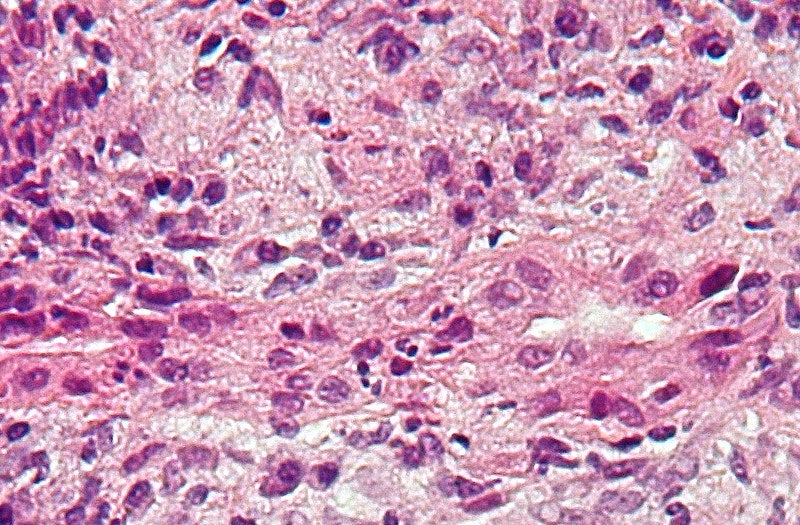
Genkyotex has reported positive final results of its Phase II trial of anti-fibrotic candidate GKT831 in primary biliary cholangitis (PBC).
This data includes pre-determined secondary efficacy analyses that were not available earlier, in addition to full safety data.

Discover B2B Marketing That Performs
Combine business intelligence and editorial excellence to reach engaged professionals across 36 leading media platforms.
The trial’s efficacy results demonstrate that when 400mg GKT831 was administered twice a day (BID), statistically significant reductions were achieved in gamma glutamyl transpeptidase (GGT) (p<0.002) and alkaline phosphatase ALP) (p<0.001) compared to placebo over the treatment period for 24 weeks.
In a pre-defined patient population, GKT831 at 400mg BID achieved a 22% reduction in liver stiffness as compared to a 4% increase for placebo.
Conducted in 62 centres in the US, Canada, Belgium, Germany, Greece, Italy, Spain, the UK and Israel, the randomised, double-blind, placebo-controlled trial enrolled PBC patients with inadequate response to ursodeoxycholic acid (UDCA).
A total of 111 subjects were allocated to UDCA plus placebo, UDCA plus GKT831 400mg OD, and UDCA plus 400mg BID groups in a 1:1:1 randomisation ratio.

US Tariffs are shifting - will you react or anticipate?
Don’t let policy changes catch you off guard. Stay proactive with real-time data and expert analysis.
By GlobalDataThe trial’s primary efficacy endpoint was a percent change in GGT at week 24.
Genkyotex chief medical officer Philippe Wiesel said: “The full efficacy and safety data from our Phase II PBC trial highlight the potential of GKT831 as a possible treatment for multiple complex and difficult to treat fibrotic disorders, including NASH and PSC.
“We look forward to complete the evaluation of GKT831 in late-stage clinical trials.”
In the trial, it was observed that GKT831 was well tolerated at all doses, with 119 adverse events (AEs) in the 400mg once a day (OD) and 100 AEs in the 400mg BID compared to 120 AEs in the placebo group.
No safety signals associated with GKT831 at 400mg OD or 400mg BID were identified during a review of safety laboratory results, vital signs, physical examination, and ECG.





